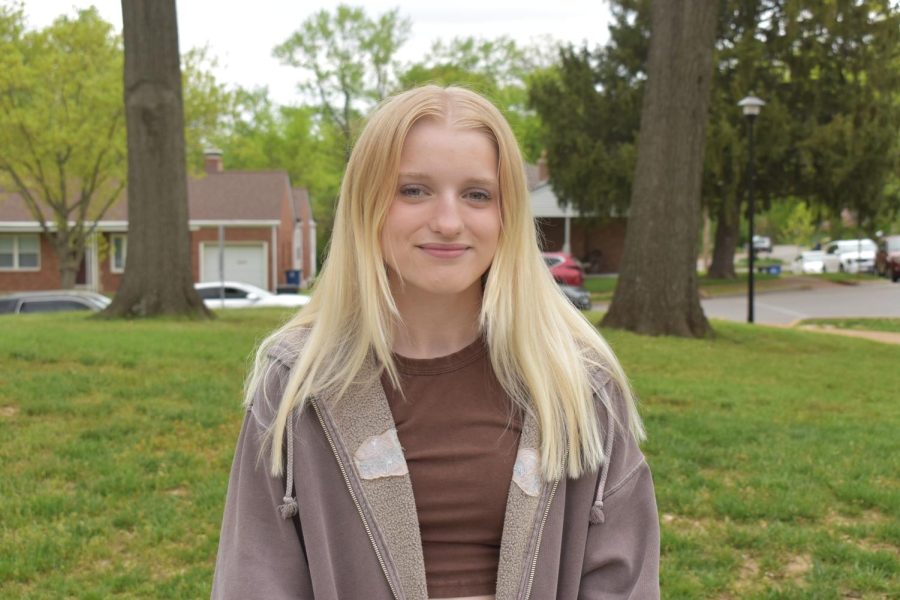Put earth over profit: the dangers of the Willow Project
May 15, 2023
All around the world, people have been debating what should be done regarding the climate crisis our planet is facing: an increasing rate of natural disasters, rising sea levels and habitats destroyed. This topic is so important that United States President Joe Biden used his stance on it during his campaign. He promised concerned voters there would be “no more drilling on federal lands, period. Period, period, period” (CNN). But now that he is in a situation that tests his dependability, he is coming up short, making it clear his promises were empty.
ConocoPhillips, an American multinational company, proposed the “Willow Project.” If passed, a long, expansive and colossal project drilling for oil on Alaska’s northern slope would launch. The land considered is part of the National Petroleum Reserve, which is federally owned land. This put the decision in the hands of the Biden Administration. A decision to cancel this project would benefit the common good, especially in the long run. Lives would be saved, habitats preserved, and we would be one step closer to repairing our damaged climate.
On Monday, March 13, 2023, the Biden administration approved the Willow Project, giving the green light to a project that will irreversibly harm the earth in regards to the climate crisis. The public’s opinion on this matter is complicated; many having mixed feelings about the endeavor. Lots of citizens that voted for Biden are outraged at the hypocrisy this decision implies. During his presidential campaign, Biden said that he would oppose things like the Willow Project that will negatively impact the already urgent climate crisis. On the other hand, there are some positive things that could come from this project. Taking a deep dive into all the factors and implications of this decision reveals a striking dilemma.
Multiple Alaska native groups are strongly in favor of the implementation of the Willow Project. The three Alaskan state lawmakers unanimously support it, citing that it would create more job opportunities for the local residents. Along with supporting the local community, state lawmakers say the Willow Project “will raise domestic energy production and lessen the country’s reliance on foreign oil” (CNN). In a meeting with Biden and his advisors, the lawmakers endorsed the project, which heavily influenced the Biden Administration’s decision. It’s also important to note that ConocoPhillips, the Biden Administration and the lawmakers are doing what is best for them- not for the common good.
In an interview by PBS NewsHour with Liz Ruskin, Washington correspondent for Alaska Public Media, was asked about those supporting the project in Alaska. Ruskin replied, in addition to Senator Lisa Murkowski, that “pretty much the whole Alaska political and business establishment, the entire legislature, the whole congressional delegation, including Alaska’s new congresswoman, Mary Peltola, (a Democrat), organized labor, Alaska Native leaders- supports it” (PBS). The issue with this is that greed is motivating their decisions. They are putting profit, power and financial gain before anything else.
Though supporters are loud, there are still people in opposition. The opinion of those living closest to the drilling sites differ greatly from those who won’t be around when the project is actually put into motion. Nuiqsut Mayor Rosemary Ahtuangaruak, along with two other Nuiqsut officials, are concerned about the environmental and public health impacts the Willow Project will have on the community closest to the drill site. In a letter they wrote to Interior Secretary Deb Haaland, they pointed out the problem: “villages get some financial benefits from oil and gas activity but experience far fewer impacts than Nuiqsut. We are at ground zero for the industrialization of the Arctic” (CNN). This sheds light on the reason why some Alaska natives are in favor, while others are hesitant. These are real people’s lives and homes that are being debated over, and their voices aren’t being considered enough in the conversation.
One organization called The Native Movement is strongly opposed to the Willow Project. On their website, The City of Nuiqsut and The Native Village of Nuiqsut point out multiple concerns, including “lack of adequate consultation, the significant impact on the health of Nuiqsut residents and the imminent detrimental loss of access to food/subsistence resources” (nativemovement.org). Specifically regarding the environmental impacts, they write, “This is the birthing grounds of the 60,000 caribou — the Teshekpuk Lake caribou herd. Nuiqsut residents have spoken out about sick fish, signs of starvation in caribou and toxic air quality directly caused by oil and gas extraction within their homelands” (nativemovement.org).
These very real concerns are going unaddressed. The least that ConocoPhillips or the Biden Administration could do is answer the questions and concerns posed by many. Their homes are being invaded and tampered with no warning. Not to mention the future problems subsequent generations will be forced to fix. The short term financial benefits are not worth the irreparable damage. There is no compromise in a situation like this; we either protect our planet or further damage it to an inhumane extent. But The Willow Project is just one example. It’s our responsibility to fight for the disregraded voices and fight for the earth.






































